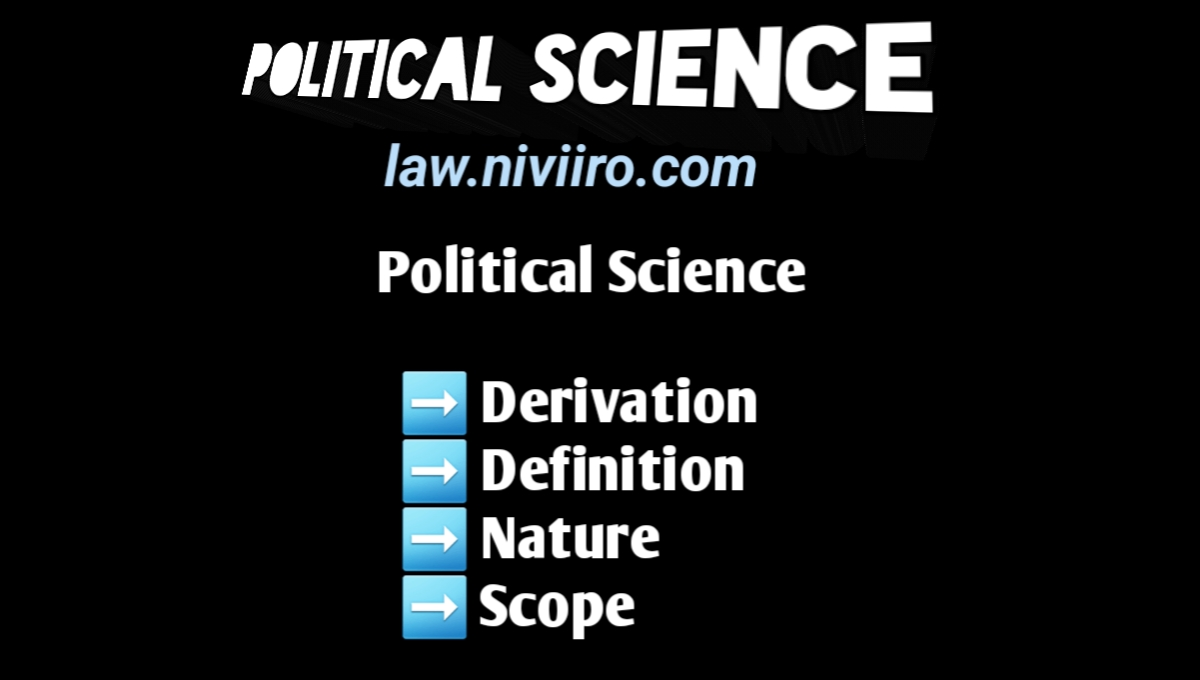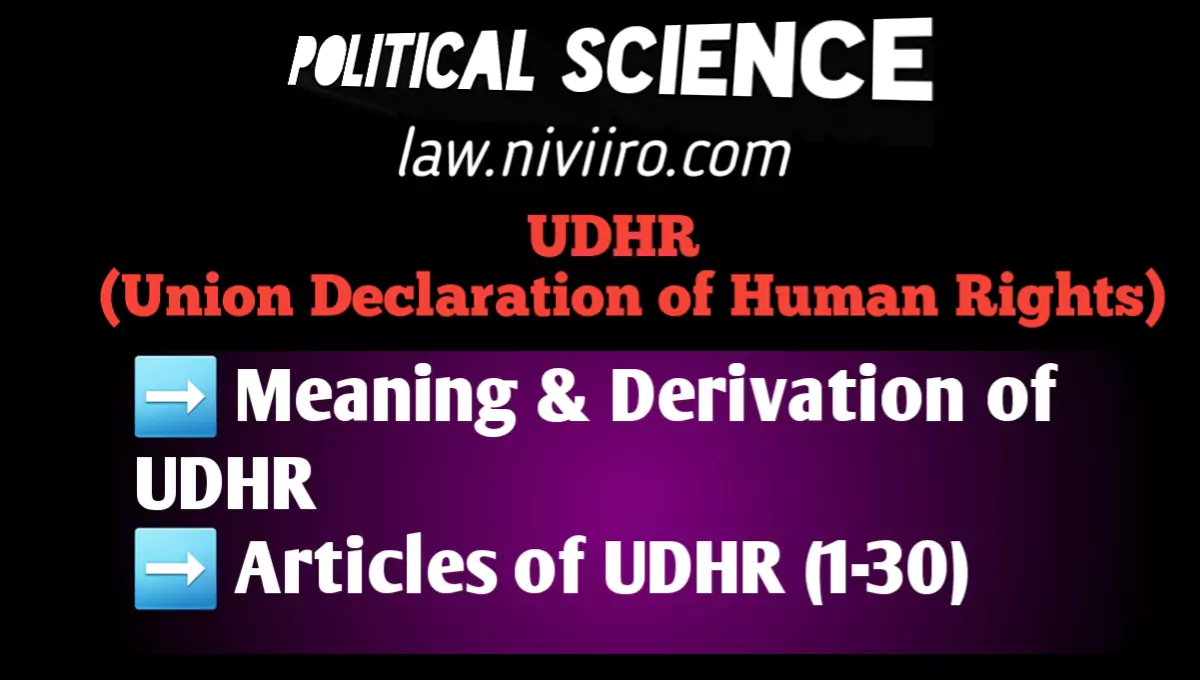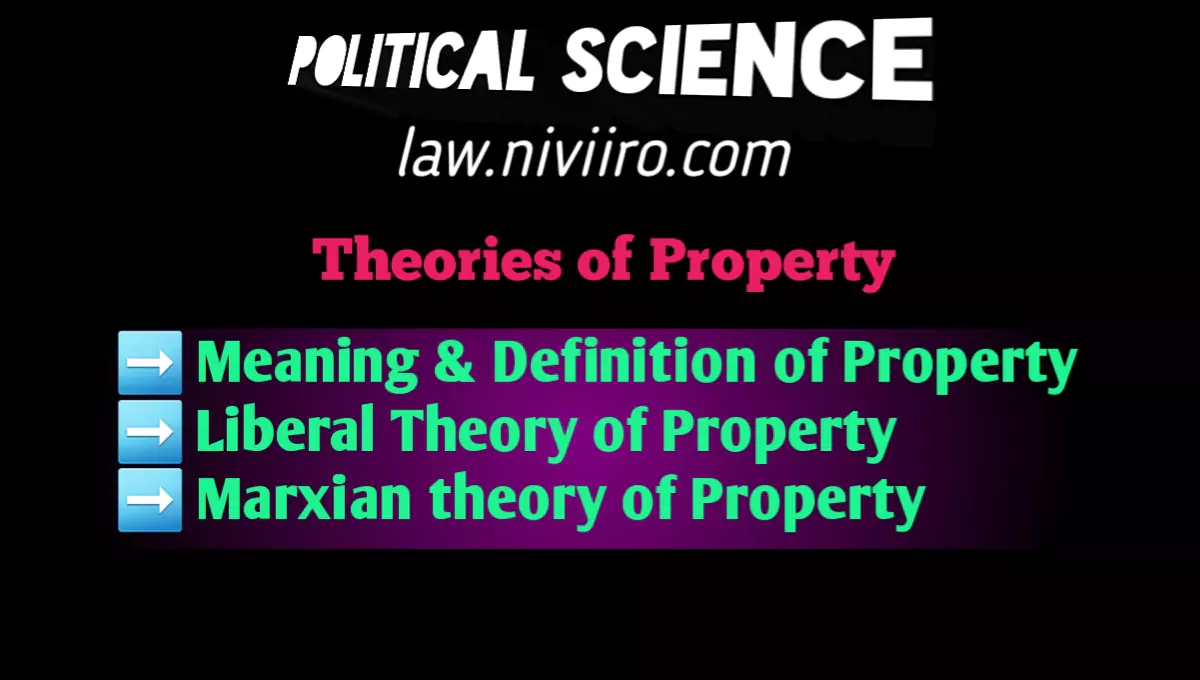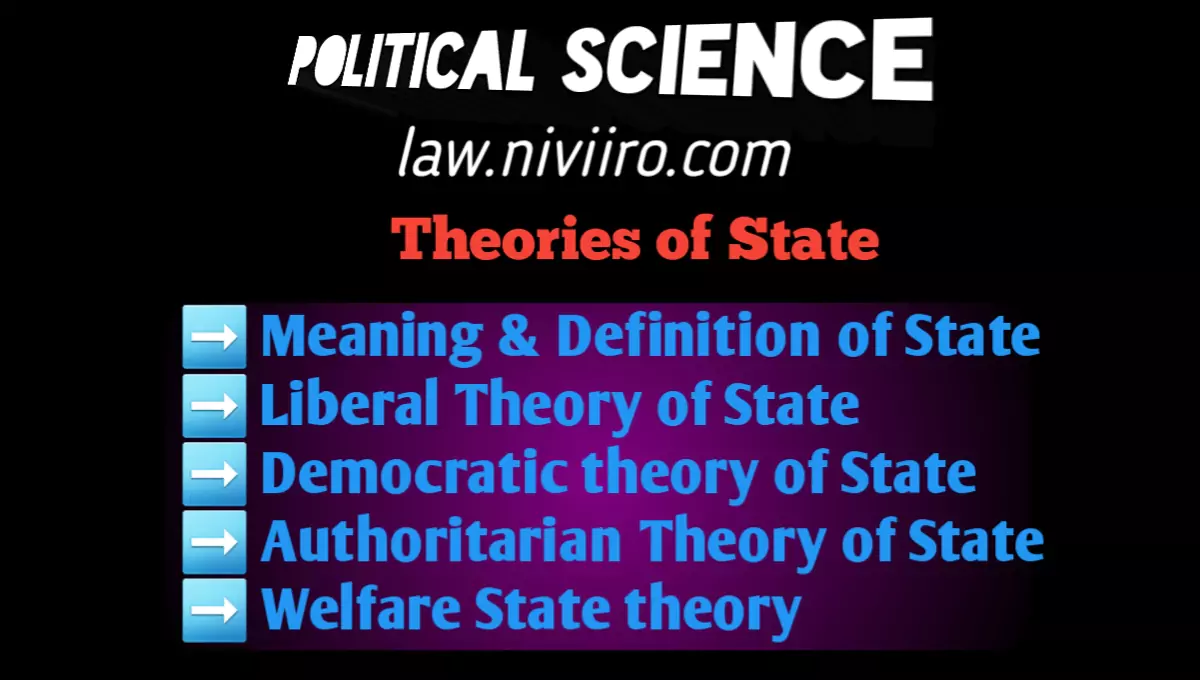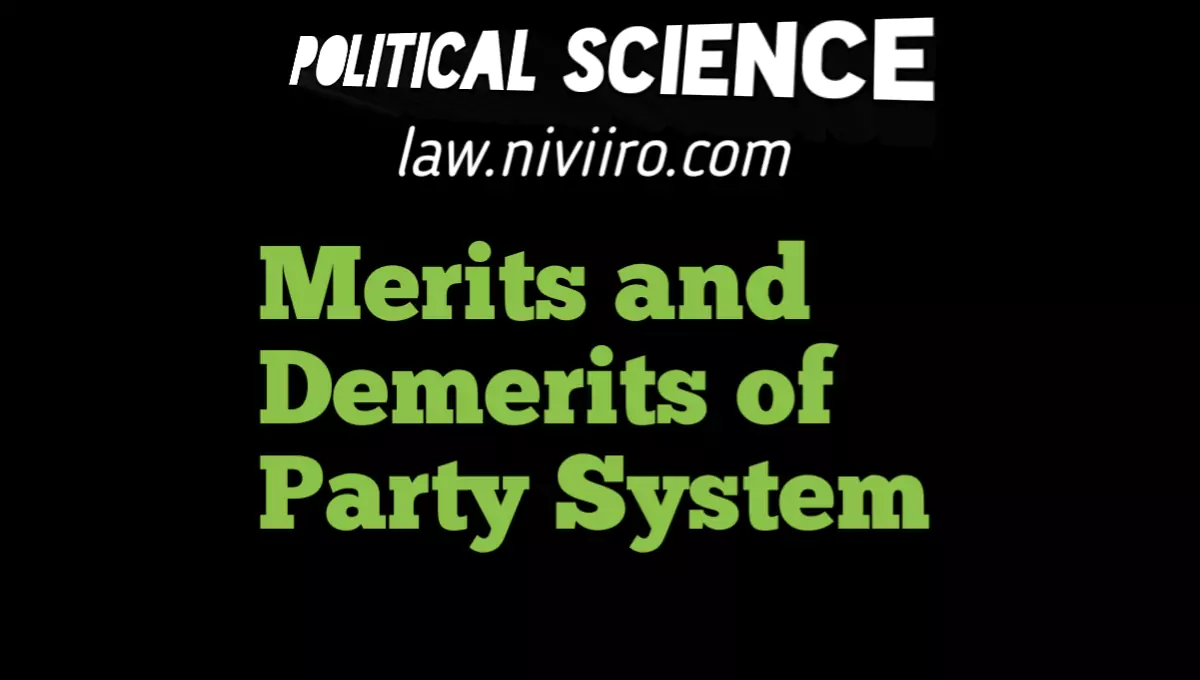Political Science is closely connected to the term “Politics,” which is derived from the Greek word “Polis,” which meaning a city-state, which was the general form of political organisation in ancient Greece. Thus, the origins of Western political thinking may be traced back to Greece. In Athens, the Sophists (roving teachers of wisdom), notably Protagoras and Gorgias, were the first to address this method of reasoning and subsequently construct a political philosophy. Later, Socrates, Plato, and Aristotle continued to conduct scientific studies of many state and governance concerns.
However, Aristotle, the world-renowned Greek philosopher, elevated his teacher Plato and his teacher’s teacher Socrates. He (Aristotle) is now considered as the father of political science in the West. While Manu is recognised as India’s earliest political thinker, and his famous book “Manusmriti” is regarded as the country’s first book of law. Later, it was Chanakya who created and formalized Indian political thought, giving it a tangible form in the form of the well-known book “Kautilya Arthashastra.”
Definitions of Political Science
- Dr. Garner belies that “Political Science begins and ends with the State.”
- According to Leacock, “Political Science deals with Government.”
- According to Paul Janet, “Political Science is the part of social science which treats of the foundations of the State and the principles of Government.”
- Gettell says, “It is, thus, a study in the past, present and future, of political organizations and political theories.”
- Seeley says, “Political Science investigates the phenomena of Government as Political Economy deals with Wealth, Biology with life, Algebra with numbers and Geometry with space and magnitude.”
- Bluntschli believes that “Political Science is a science, which is concerned with the State, endeavours to understand and comprehend the State in its essential nature, various forms, manifestations and developments.”
- Garris, famous German author is of the opinion that “Political Science deals with the origin, development, purpose, and all political problems of the State.”
- According to Lord Acon, “Political Science is concerned with the State and with conditions essential for its development.”
As new approaches to the study of Political Science has been made with the interaction of new forces, Catlin defines Political Science as the study of “the act of human and social control” or “the study of control relationship of wills.” On the other side, there are German writers who investigate it from a sociological standpoint and refer to it as “the problem of power and social control.”
If we closely examine and analyse all of the definitions provided above, we can conclude that the major subject of political science research is the state and government.
Nature of Political Science
Since we are primarily interested in Western political philosophy, we begin our exploration with Aristotle’s theories on Political Science. Aristotle stated in his great book “Politics” that “man is by nature a political animal, and he, who is without state by nature and not by mere chance, is either above or below mankind.” In other terms, he declares, “He who is unable to survive in society or who has no need since he is adequate for himself must be a beast or a god.”
There is no question that man is a social and political animal since he cannot exist without society or the state. He wishes to live in society and follows the laws and regulations of the state by nature. If a person is left alone to survive in a deep and awful jungle, he will quickly get tired of it and long for the company of his fellow creatures. Man aspires to live in society not only by nature, but also by force, because he is completely incapable of meeting his requirements without the assistance of society. He cannot provide for himself the innumerable things required in everyday life by living alone.
With the support of others, he can satisfy his basic requirements for food, clothes, and shelter. Only a well-organized society can give him with the necessities of everyday living, because human existence is not safe and secure in a disorganised and discordant society. Civilization and culture cannot grow in an environment where human existence is dangerous and insecure. Man’s protection and the security of human life are only conceivable in a well-governed state.
As a result, man is in desperate need of a well-governed state. Without it, society would descend into chaos, and human development will be impeded. As a result, a well-governed state is essential for human advancement.This is why the focus of our study is the State and Government, which are integral parts of Political Science.
Many people now feel that man is not necessarily a political animal, and that he is also selfish, but that man wants to live in the state because it is more advantageous for him to do so than without it, where lawlessness reigns. Everyone can see the benefits of living in the state. As a result, noted American author Robert A. Dahl. “However, while humans must and do live in political systems and reap the benefits of political life, they do not always participate in political life; they are not always interested in politics, nor do they always care what happens in politics; know much about political events, or participate in making decisions.”
Robert A. Dahl further observes, “An individual is unlikely to get involved in politics if he places a low valuation on the rewards to be gained from political involvement relative to the rewards expected from other kinds of human activity. For many people, political involvement is far more satisfying than other activities such as family, friends, entertainment, and so on. For many people, political activity gives significantly less affection, income, security, respect, excitement, and other values than working, watching television, reading, fishing, playing with children, attending a football game, or putting together a new hi-fi system. For many people, the benefits of other hobbies are more immediate and concrete.”
As previously said, Political Science is a scientific study of the state and government. It is important to remember that every civilization has a variety of political, social, economic, religious, and cultural organisations. One of them is the state. However, it is a crucial political institution. It upholds law and order in society, protects human life, and allows humans to grow in all areas. The primary duty of the state, without a question, is to ensure social harmony, but this is not the only function. It is now a welfare state, and as such, it aims to promote the wellbeing of the people.
For example, nowadays, the state provides its inhabitants with higher education and better medical care. It funds the construction of roads and bridges for them. It develops agricultural and industrial strategies and programmes, as well as pricing restrictions. There will very certainly be no sector of life in which the State or Government does not operate. As a result, studying such a significant institution is critical.
Scope of Political Science
Study of State and Government
Political Science is the science of the state and the government, hence it studies both the state and the government. It is concerned with the nature and creation of the state, as well as the many forms and functions of government; just as experts disagree on the definition of Political Science, so do they on its scope.
On the one hand, Bluntschli, Garris, and others feel that the scope of Political Science is limited to the study of the State alone, but on the other hand, researchers such as Leacock argue that the study of the Government is more important than the study of the State. According to Leacock, Political Science Ideals only apply to the government. “Because politics is the making of decisions by public means, it is principally concerned with government, that is, with the direction and self-direction of vast communities of people,” writes Leacock Karl W. Deutsch.
The term “State” does not appear in his definition of Political Science, although Laski, Gilchrist, and Gettell believe that Political Science encompasses the study of both the State and the Government. According to Bluntschli, “Political Science is a science which is concerned with the State, endeavours to understand and comprehend the State in its essential nature, various forms. manifestations and developments.” However, according to Janet, a French author, “it is that branch of social science that deals with the foundations of the state and the principles of government.”
If we study Political Science closely and thoroughly. We learn that, regardless of the differences between the State and the Government, the scope of one cannot be separated from the scope of the other. The State is the agency through which the Government operates. The State is a figment of the imagination, and the Government gives it physical form.
As a result, one completes the other. The absence of the Government precludes the existence of the State. This is why Laski, Gilchrist, Gattell, and others have included the study of the State and Government within the purview of Political Science.
Study of Associations and Institutions
The scope of Political Science also includes the study of associations and institutions. “In an organised way, the fundamental problems of Political Science include, first, an investigation of the origin and nature of the State, second, an inquiry into the nature, history, and forms of political institutions, and third, deduction of laws of political growth and development from there, as far as possible.”
In other words, we study the origins and growth of the State, as well as many other political institutions and groups, in Political Science.
There are various types of institutions in a country or society, and the State, as the top institution, controls all of them. These institutions serve the nation and serve a purpose in society. This is why, in Political Science, we study these institutions alongside the State.
Study of National and International Problems and the Political Study of Man
Political Science is closely related to the English word “Politics,” which is derived from the Greek word “Polis.” It denotes a city-state. Greece was divided into small city-states in ancient times, and the affairs of those city-states were known as Politics. However, the definition of “Politics” is no longer recognised to be so limited. Political Science is no longer limited to city-states, but now deals with national and international issues.
Regardless, it is not incorrect to state that the scope of Political Science includes the political study of man; otherwise, the study of Political Science will be inadequate.He writes, “It may be said that the character of Political Science in all of its parts is determined by its basic pre-supposition regarding man.”
Burgess, in clarifying the scope of political science, has stated that modern aspirations for land-extension, representative governance, and national unification have become political science not just the science of political independence, but also of state sovereignty. The study of political science, in the words of Laski, “concerns itself with the life of man in relation to organised states.”
Study of Past, Present and Future development of State
Political science is concerned with the past, present, and future developments of the state. Gettell states about the scope of political science: “Political science, in its historical aspects, deals with the origins of the state and the development of political theories in the past….in its current aspects, it strives to characterise and classify existing political institutions and ideas. Political science also looks to the future, to strengthening political structures and actions in the face of changing situations and ethical norms.” It is thus a study of the state in the past, present, and future, of political organisation and political function, of political institutions and political philosophies.
In other words, political science seeks to explain the meaning and basic nature of the state, as well as the laws that govern its progression and evolution. It sheds light on its genesis, form, and structure, as well as its interactions with other governments and international organisations. Political science studies also include a historical examination of the origins and history of the state. Its scope is not limited to the study of the past and present, but it also determines the future direction of the state’s growth. It makes timely recommendations for enhancing political institutions and adjusting political activity to suit the new demands of a changing environment.
Related Post
Define Political Science ?
Political Science is well defined by the Dr. Garner belies that “Political Science begins and ends with the State.” &
According to Leacock, “Political Science deals with Government.”
Where from word “Political Science” derived ?
Political Science is closely connected to the term “Politics,” which is derived from the Greek word “Polis,” which meaning a city-state, which was the general form of political organisation in ancient Greece.
Which is known as India’s first law book ?
“Manusmriti” is known as India’s first law book
References
- V.D. Mahajan, Political Theory
- M.P. Jain, Political Theory liberal and Marxiam
- J.C. Johari, Political Science
- Prof. H.C. Verma, Modern Political Theory
- R.C. Agarwal, Political Theory
- Prof. S.L. Verma, Modern Political Theory













